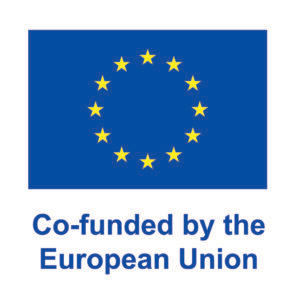SLog4.0
DELPHI STUDY was used to elaborate DESIGN PRINCIPLES for new STUDY COURSE
13/06/2023, Brigita Gajšek and Simona Šinko, Faculty of Logistics, University of Maribor
One of five activities within WP2 was A2.3 Delphi study to elaborate design principles. The activity validated the first version of the Design Principles defined in the activity WP2 A2.1. The activity, which lasted five months (November 2022 – March 2023), was divided into four tasks, presented in Figure 1.
Figure 1: Tasks for activity A2.2 Delphi study to elaborate Design Principles

The Delphi process was divided into national level and international level, each containing two rounds (Figure 2). The national level was intended to determine key and essential topics on sustainability, digitalization and Industry 4.0. In the first round, 68 panelists proposed several dozen relevant topics. After the first round, duplicates were removed from the list of topics and similar topics were merged. In the second round, 56 panelists ranked 51 collected topics according to their expert-based perception of importance. Seven the highly ranked topics are (1) Industry 4.0 and Logistics 4.0 concepts, (2) Digitalization and Logistics 4.0 maturity models, (3) Sustainability in Logistics 4.0, (4) Economic sustainability in Logistics 4.0, (5) Social sustainability in Logistics 4.0, (6) Environmental sustainability in Logistics and (7) Industrial Internet of things for green logistics.
Figure 2: The Delphi process

Delphi study national level was followed by international level. In its first round, 28 panelists proposed learning outcomes to each in national level defined topic. In the second round of international level, 16 panelists ranked 127 collected learning outcomes. The four highest-rated learning outcomes are:
- Student is able to identify 4.0 technologies and their applicability to Logistics 4.0 cases;
- Student can critically judge transport modes in sense of green and sustainable goals;
- Student can plan digital technology (digital platforms, software, and other technologies) to automate and optimize the various logistics processes such as transportation planning, inventory management, and order fulfilment;
- Student is able to implement teamworking.
Thanks to the activities carried on in WP2 A2.3, the partners are aware of knowledge, skills and competencies that the students need in order to significantly contribute to “greening” and digitalization of the logistics sector and become more employable. In conclusion, the results and objectives of A2.3 have been reached and officially validated by the whole project consortium.
More details about results of activity WP2 A2.3 will be published in the Technical Journal (ISSN 1848-5588) at the end of September 2023 in a scientific paper Determining Learning Outcomes Relevant for Logistics Higher Education on Sustainability and Industry 4.0.


